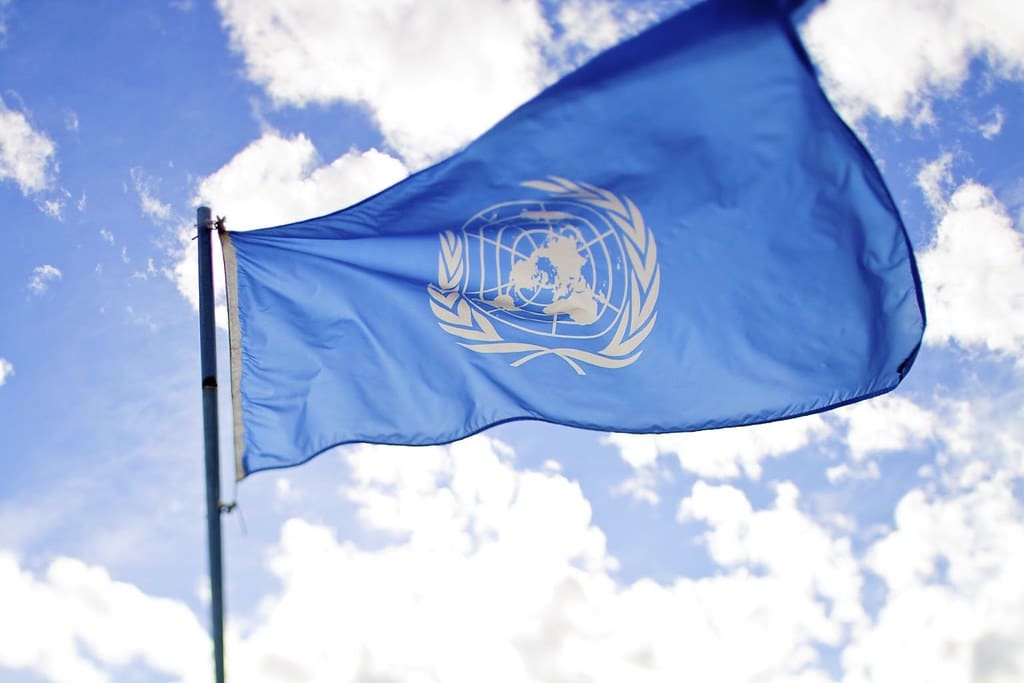On August 3, 2020, 144 families of victims of police violence and more than 360 civil society organizations submitted a letter to Michelle Bachelet, the United Nations (UN) High Commissioner for Human Rights, regarding a recent UN resolution on “the promotion and protection of the human rights and fundamental freedoms of Africans and of people of African descent against police brutality and other violations of human rights.”
The UN Human Rights Council adopted A/HRC/43/L.50 on June 19: the resolution acknowledges how the surge of protests following the death of George Floyd in Minneapolis has shed light on systemic racism and police violence in our nation. The resolution states the Human Rights Council “strongly condemns the continuing racially discriminatory and violent practices perpetrated by law enforcement agencies against Africans and people of African descent, and the structural racism endemic to the criminal justice system in the United States of America and other parts of the world recently affected.” The Human Rights Council will now “establish an independent international commission…to establish the facts and circumstances” surrounding systemic racism and racial injustice, police brutality, and “alleged violations of international human rights law and abuses against Africans and people of African descent in the United States of America and other parts of the world recently affected by law enforcement agencies.” With the adoption of this resolution, the new commission is to analyze governmental responses to the peaceful protests, communicate and coordinate with the U.S. government in these examinations, and give oral updates and a final presentation at upcoming Human Rights Council convenings. Additionally, the High Commissioner is also beholden to “include updates on police brutality against Africans and people of African descent in the United States of America and other parts of the world recently affected in all future oral updates to the Council.”
The August letter to the High Commissioner provides suggestions to the UN on how to “ensure effective implementation of the resolution and a transparent, inclusive process for producing the report with maximum meaningful participation and engagement from directly impacted communities and other relevant stakeholders.” The collective urges the High Commissioner centers “the lived experiences of people of African descent and be informed primarily by individuals and communities directly impacted by structural racism and police violence,” which will include direct community outreach in a space where individuals aren’t afraid to share their experiences. The group also wants the High Commissioner to expand the focus of police killings. Since the resolution only mentions Floyd’s murder, they want to make sure the commission will examine more individual cases.
The letter also mentions that the UN should “thoroughly examine the history of racist policing” and “outline steps and measures that must be taken to dismantle structural racism.” The group concedes that the COVID-19 pandemic has created financial crises worldwide. Still, the importance of this commission and the surrounding “urgent debate” requires sufficient funding and should remain a high priority. Finally, the group advises that the UN commission should not limit themselves to “desk research and/or a call for written submissions through notes verbales.” Instead, the commission should hold public hearings to learn more about the struggles, from individuals who have lived through or been affected by police violence. The pandemic would push those hearings online, allowing participation from a wider range of voices.
The letter ends with four pages of the names of family members of police violence victims. Names that have made headlines, like Breonna Taylor, Philandro Castile, and Michael Brown Jr., are represented by their parents, brothers, and other family members, as well as hundreds of victims who never made national headlines. The family members’ names are organized by the year their loved ones were killed, and each name lists what law enforcement department was responsible for their loved one’s murder.
